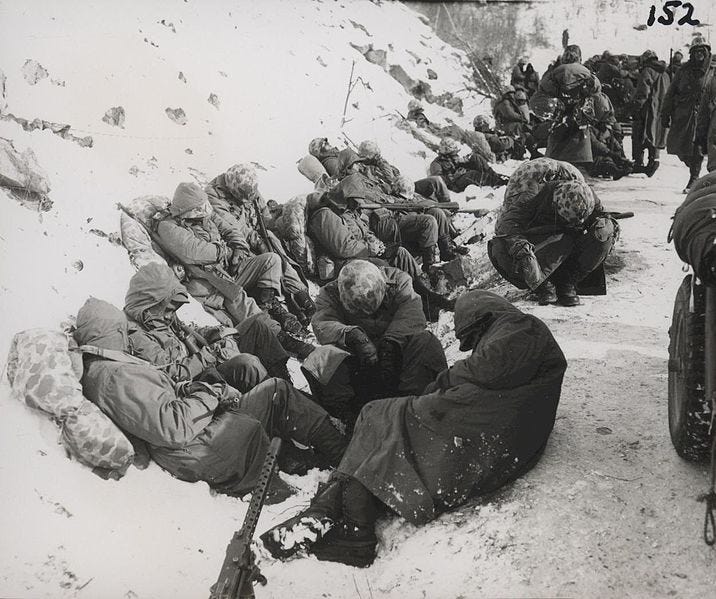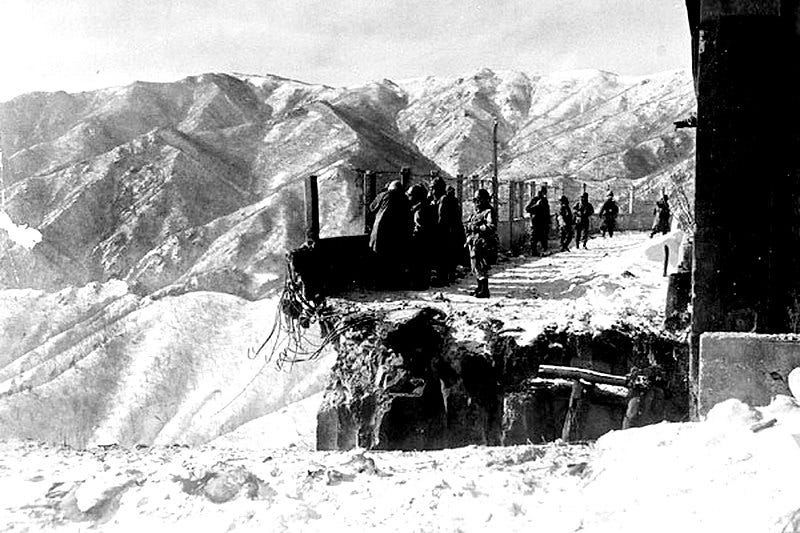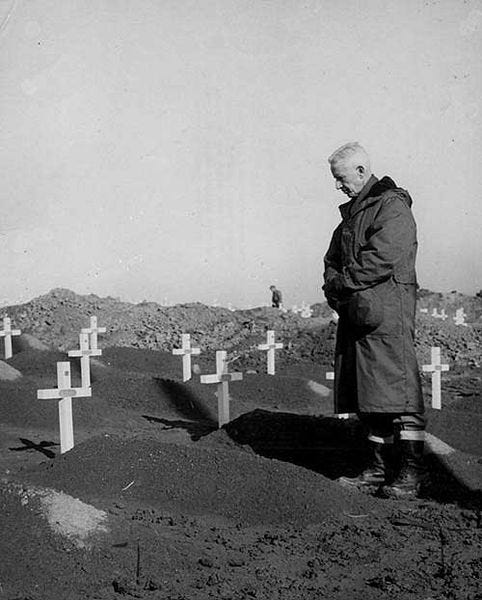The Chosin Reservoir
Remembering the Frozen Hell of the "Forgotten War"
The Korean War, often overshadowed by the wars that bookended it, has earned the somber title of the "Forgotten War." Yet, for the veterans who fought there, the memories are anything but forgotten. Especially for those who endured the brutal Chosin Reservoir Campaign, a harsh winter battlefield that etched itself into their souls.

In the winter of 1950, United Nations forces, including a large contingent of American Marines, pushed north in Korea with the aim of unifying the peninsula. Little did they know they were about to be encircled by a massive Chinese army near the Chosin Reservoir. What followed was a desperate fight for survival in some of the most brutal conditions imaginable.
“Retreat Hell! We’re just attacking in another direction.”
- General Oliver P. Smith, U.S. Marines, 1st Marine Division Commander during the Chosin Reservoir Campaign
Temperatures plunged to 30 degrees below zero, turning men and machines into brittle statues. Marines huddled together for warmth, their weapons seizing up, their rations turning to rock. Medical supplies froze, and batteries in Jeeps and radios quickly ran down in the bitter cold. For more than two weeks, they fought a desperate withdrawal, clawing their way south under constant attack.

The Chosin Reservoir Campaign was a tactical withdrawal, but at a heavy cost. Over 13,000 American casualties were suffered, many from frostbite and exposure. The veterans who emerged from the Chosin Reservoir carried not just physical scars, but the invisible wounds of war. Exposure to the extreme cold has led to a unique set of health challenges for these veterans, with statistics painting a stark picture:
Lifelong struggle: According to the Department of Veterans Affairs, a staggering 80% of Chosin Reservoir survivors experience chronic pain and numbness in their extremities.
Increased risk of cancer: The VA reports that veterans with severe cold injuries are at a 20% greater risk of developing skin cancer, particularly in areas with prior frostbite.
Arthritis and nerve damage: The extreme cold can damage nerves and joints, leading to arthritis and loss of mobility. Studies suggest a higher prevalence of these issues among Chosin Reservoir veterans compared to other Korean War veterans.

The Chosin Reservoir serves as a potent reminder of the sacrifices made during the Korean War. As we remember the "Forgotten War," let us not forget the extraordinary resilience of the men who fought in the frozen hell of the Chosin Reservoir, and the unique challenges they continue to face. These veterans deserve our recognition, our support, and access to the healthcare they need to manage the lingering effects of that brutal winter.
